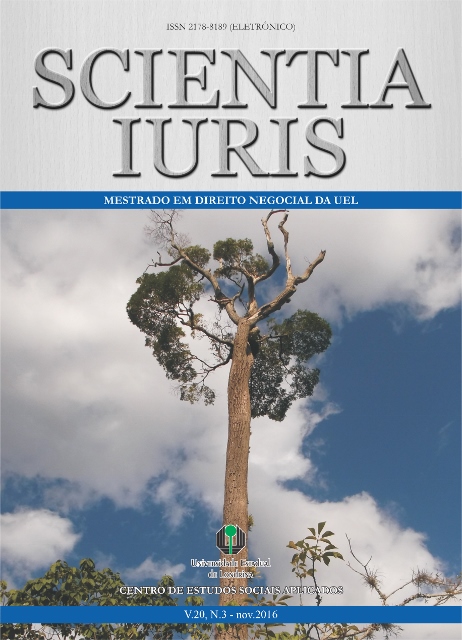The collective bargain in the context of public administration, under the superlegality and the conventionality control
DOI:
https://doi.org/10.5433/2178-8189.2016v20n3p131Keywords:
Public Administration, Rights of Public Worker, Collective Labor Bargaining, Conventionality ControlAbstract
This paper discusses collective bargaining work as a constitutional guarantee of the fundamental human right to work of civil servants, in view of the conventionality control. However, the problem lies in examining whether the instrument of collective bargaining may be applicable to the public sector; thus, analyzing if the institute is also compatible with the Brazilian Constitution. This study addresses the doctrinal and jurisprudential debate on the hierarchy of international treaties - specifically those that guarantee the realization of collective bargaining in the Brazilian public service. This research aims to show that international human rights treaties that are incorporated into national law have domestic applicability, which ensures the viability of the Public Collective Bargaining. This study also investigates the possibility of implementing conventionality control, which seeks to ground the collective bargaining in Brazil's domestic environment, and discusses critically the ADI Nº. 492 of the Supreme Court that declared the unconstitutionality of Article 240, paragraphs "d" and "e" of the Law Nº. 8,112 / 90. With the use of the bibliographic methodology, doctrinal and jurisprudential analyses, this paper examines international treaties before the advent of Amendment to the Constitution nº. 45/2004 of Brazil, and its implication in the control of conventionality, particularly within the realm of the the conventions` number 151 and 154 of the International Labour Organization. This paper concludes that the collective negotiations in the public administration does not affront the Constitution and enables maximum effectiveness, as they ensure the achievement of fundamental objectives.
Downloads
Downloads
Published
How to Cite
Issue
Section
License
Copyright (c) 2022 Scientia Iuris

This work is licensed under a Creative Commons Attribution 4.0 International License.
The journal reserves the right to modify, in the original text of the submitted article, normative, spelling and grammatical mistakes in order to maintain the cultured standard of language and the credibility of the journal. The journal will respect the authors' writing style. Changes, corrections or suggestions of conceptual order will be sent to the authors, when necessary. In such cases, the articles will be re-examined. The final exams will not be sent to the authors. The published works become the property of the journal, in other words, its total or partial reprinting is subject to the express authorization of the journal. In all subsequent citations, the original source of publication shall be cited and in the case of Photographic Speeches, shall be approved by the original author. The opinions expressed by the authors of the journal's articles are of their sole responsibility.

















